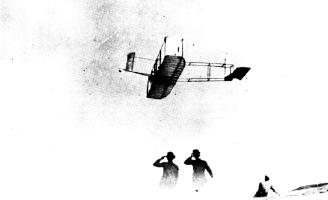All New Cockpit
Voice Recorder
Accounts of
In-Flight
Accidents
Malcolm MacPherson, Editor
(Quill/William Morrow)
 The author advises that you might not want to read this before you embark on an airplane trip. I would also suggest that you not read it before breakfast. There are twenty-eight recordings from the famous black boxes, which record (and save) everything said and heard in the cockpit --- in this case --- right up to and including the moment of impact.
The author advises that you might not want to read this before you embark on an airplane trip. I would also suggest that you not read it before breakfast. There are twenty-eight recordings from the famous black boxes, which record (and save) everything said and heard in the cockpit --- in this case --- right up to and including the moment of impact. The horror is not so much the after as the before. Pilots, co-pilots, flight engineers not only talk their technical jargon, but also give out jokes, rather intimate musings on their personal lives, flirt-talk with stewardesses, and long descriptions --- in one case --- of the gooney birds on Midway Island:
- "They were hilarious...You'd get ready to take off. They'd send a pickup truck out and they'd go move the birds off the runway so you could take off..."
These innocents do not know that in a minute or two they will be porridge, but you and I have that knowledge --- and as with any tragedy --- the foreknowledge creates an almost unbearable tension. You pick up Black Box and two hours later you are putting it down and vowing never to fly again.
Mixed in with the usual messages to the passengers --- "We're going to be flying at an altitude of 37,000 feet, the wind is from the north at ten miles an hour, the weather in Dallas is clear and 51 degrees, and we should be on time" --- are all the technical details: checklists and cross feeds and DME and Slats and Spoilers and Vee One and Vee Two (none of which, by-the-bye, is enough to save their asses.) Mixed with this is talk about girlfriends, and having to take a pee, and the onerous burden of FAA rules, and the type of fruit juice the stewardess is going to send in and then:
[Sound of several thuds]"We've got a left engine out...flight idle...god damn...emergency." Then End of Tape. And, at the same moment, the end of three or thirty-three or, in one horrendous case, 505 lives.
What are the very last words of pilots and copilots and engineers who obviously, in the last few seconds, without a doubt, know that they have reached the end of the line? Often it is what you would expect: "Pull it up, pull it UP!" or "Help me hold it!" or "We're goin' down!" or this from USAir Flight 426, Pittsburgh, September 8, 1994:
CAPTAIN: Four twenty-seven, emergency!
COPILOT: [Screams]
CAPTAIN: Pull...
COPILOT: Oh...
CAPTAIN: Pull...pull...
COPILOT: God...
CAPTAIN: [Screams]
COPILOT: No...
Equally, there might be a simple "Aagh!" Or, again, "Damn it!" Or the wonderfully understated "Uh-oh." Or (Air France Flight 296Q, June 26, 1988) "Aw, Shit!"
MacPhearson has edited these tapes, but from our experience, some of the editing is flawed. When PSA Flight 182 went down in San Diego in 1978, the local newspaper carried the final minute of the black box dialogue. Here in the book, it has been elided: it merely ends with [Sound of stall warning]. The San Diego Tribune, gave the final sentence to another PSA captain who had hitched a ride with them from Los Angeles. His last words were, quite simply, "Mama, I love you." It spoke volumes.
A Cricket in
The Telephone
(At Sunset)
Lolita Lark, Editor
(Mho & Mho)
 This is ostensibly an anthology of the best poetry that appeared in the peculiar quarterly called The Fessenden Review during its five year existence. If one pays attention to the sequence of the poems, and the names of the poets themselves, and the so-called "Introduction" (and even the "Index of First Lines"), one gets the distinct feeling that one is being diddled with. Indeed, this may be the first time, in late 20th Century English literature, that a book billed as an anthology of poetry turns out to be a Nabokovian chess game, with a puzzle of names right out of Joyce, and mystery worthy of Raymond Chandler.
This is ostensibly an anthology of the best poetry that appeared in the peculiar quarterly called The Fessenden Review during its five year existence. If one pays attention to the sequence of the poems, and the names of the poets themselves, and the so-called "Introduction" (and even the "Index of First Lines"), one gets the distinct feeling that one is being diddled with. Indeed, this may be the first time, in late 20th Century English literature, that a book billed as an anthology of poetry turns out to be a Nabokovian chess game, with a puzzle of names right out of Joyce, and mystery worthy of Raymond Chandler.The "Introduction" says that the magazine depended on its readers for reviews, but
We also created a stable of fake names so that people would think we had a vast staff awaiting our assignments: Ignacio Schwartz, Jeremy Colon, Wanda Felix, Carlos Amantea, T. F. Bierly, A. W. Allworthy...and my personal favorite, P. P. McFeelie.
Confoundedly, this anthology includes poems ostensibly produced by these very same "fake" writers.
Furthermore, in one of the footnotes, the publisher states that The Fessenden Review featured on the cover of its penultimate issue names of such authors as
Nadine Gordimer,
Nancy Mitford,
Umberto Eco,
Lawrence Durrell
He then says that the list also contained
- ...names that sounded literary but that were strictly whole-cloth: Isabel Luis Corazon, Anwak Fayoumi, P. J. Weise, Jorge Amado, Lolita Lark, Laura Huxley. Names to test people. Just to make sure they were paying attention.
 Finally, in the "Index to First Lines," we find not only poems carried in the collection, but Nel mezzo del cammin di nostra vita (which is the opening line of Dante's Divine Comedy,) and Arma virumque cano, Troiae qui primus ab orbis which is, I believe, the beginning of the Aeneid.
Finally, in the "Index to First Lines," we find not only poems carried in the collection, but Nel mezzo del cammin di nostra vita (which is the opening line of Dante's Divine Comedy,) and Arma virumque cano, Troiae qui primus ab orbis which is, I believe, the beginning of the Aeneid.
In all, A Cricket is a very peculiar collection of fancy, but --- despite all this tomfoolery --- the poetry some of the best to come out of America in the 80s and 90s. If there weren't so much dicking-around here, perhaps the volume would receive the credit it deserves.
For instance, in the title essay, "Mali Blues," she describes at length her visit with the famous Mali musician Kar Kar, but her questions and his responses leave us with the feeling that he was somewhat saintly to put up with her not-very-inspired interview, even though she does succeed in giving us an interesting portrait of a famous musician not caught up in money, agents, and the perks of the international musical life. If you plan to spend the rest of your life god forbid in Senegal, you might want to pick this one up and take it with you --- but from her hot and dusty descriptions --- if nothing else, Joris has convinced us that we are probably better off staying in Rahway, New Jersey for the summer.
Blues:
Traveling to an
African Beat
Lieve Joris
Translated by Sam Garrett
(Lonely Planet)